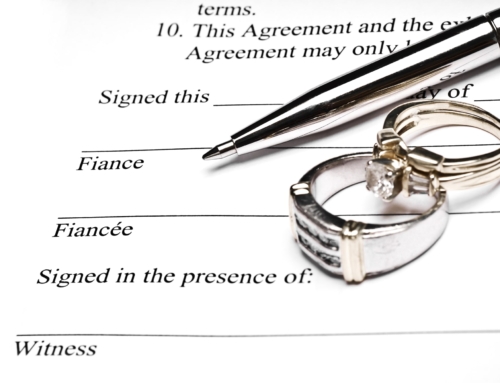The divorce process can be a tumultuous time for all parties, and when a couple’s lives are intertwined with a business, things get more complicated. For business owners, the potential impact of divorce on their enterprises can be significant. Whether you are getting married or separating, it is important to understand the key advice about protecting your business during a divorce.
Are you looking to safeguard your business during a divorce? Here is an insight into what to expect.

What happens to a business when a couple divorces?
When couples part ways, their assets, including businesses and investments, come under scrutiny when considering the division of finances. This can lead to challenges for business owners who wish to shield their hard-earned ventures from divorce proceedings.
To protect a company from potential disruption, it is crucial to maintain separate finances wherever possible, consider legal agreements and seek professional advice.
Are you entitled to half the business in a divorce?
Contrary to popular belief, the principle of an automatic 50/50 split of assets does not always apply during a divorce. The division depends on various factors, such as the business’s nature, each spouse’s contributions and overall financial circumstances.
Courts will consider the value of the business, the role each spouse played in its growth and the best interests of any dependents involved. While pre and post-nuptial agreements are not strictly binding, they can also carry significant weight in court, providing a clear framework for asset division.
How can you protect your business from divorce?
Safeguarding your business from divorce requires proactive measures to navigate the complexities involved. If you are planning your big day or already married, you may wish to consider a pre-nuptial or post-nuptial agreement. This legal document outlines what will happen to your business upon separation, offering greater clarity between parties and preventing disputes.
Other ways to protect your business from divorce include maintaining a clear separation between business and personal finances. This means avoiding mingling marital funds with business accounts. You may also decide to keep all business matters in your name if your spouse is not involved in the running of the company or financial contributions. Otherwise, you may need to make hard decisions about selling the business or buying their shares.
During a divorce, always obtain a professional business valuation to determine its worth objectively, minimising disagreements over its value. Transparent communication about the business’s financial situation can lead to more amicable resolutions. You could also explore mediation services for mutually agreeable solutions, reducing the adversarial nature of proceedings.
Should you hire a divorce lawyer?
Hiring a divorce lawyer is highly recommended, especially when a business is involved. A skilled lawyer with family law expertise can provide valuable guidance tailored to your unique situation.
They can help you understand your rights, negotiate fair settlements and protect your business interests. An experienced divorce solicitor be also be well-versed in dispute resolution methods, saving time, money and emotional turmoil.
Always choose a divorce lawyer who understands the intricacies of business ownership during divorce proceedings, significantly enhancing your chances of a smoother process and the peace of mind of a secure future.
Looking for an experienced divorce solicitor? Get in touch
At Bellwether Solicitors, we are experts in all aspects of divorce proceedings, operating across areas surrounding Cheam and Kingston, including Banstead and Carshalton.
For expert advice, please contact us today.







